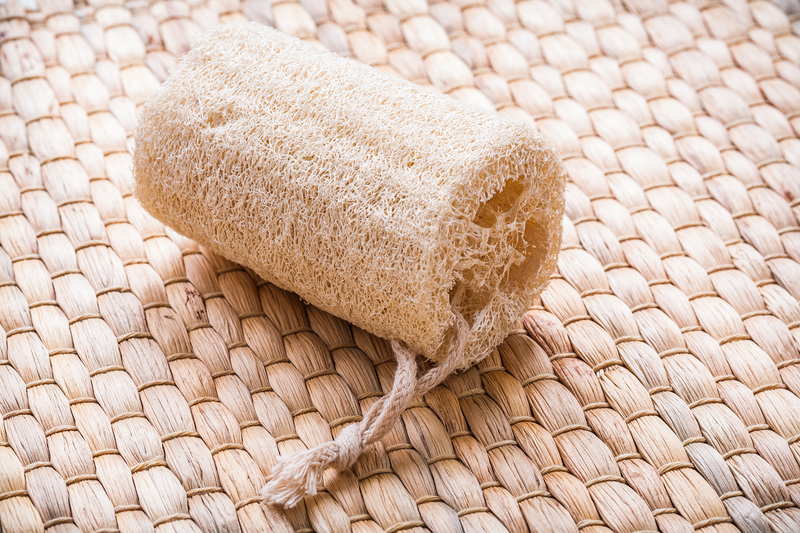Make Descaling a Breeze: Expert Techniques for Removing Mineral Deposits from Your Kettle
Posted on 07/06/2024
Have you ever noticed a white or brown build-up on the inside of your kettle? This is a result of mineral deposits, also known as limescale, that can accumulate over time. Not only does it look unappealing, but it can also affect the taste of your hot beverages. Luckily, descaling your kettle doesn't have to be a daunting task. With these expert techniques, you can easily remove mineral deposits and keep your kettle in top shape.
What Causes Mineral Deposits in Your Kettle?
Before we dive into the different methods for descaling your kettle, it's important to understand why mineral deposits form in the first place. When water is heated, minerals such as calcium and magnesium can adhere to the heating element and walls of your kettle. Over time, these minerals build up and form a thick layer of limescale.

Method 1: Vinegar
One of the most commonly used methods for descaling a kettle is using vinegar. This household staple is acidic and can easily dissolve mineral deposits. Simply mix equal parts vinegar and water in your kettle and let it sit for at least an hour. Afterward, boil the solution and then let it cool before rinsing thoroughly with water.
Method 2: Baking Soda
Another cost-effective and natural option for removing mineral deposits from your kettle is by using baking soda. Mix two tablespoons of baking soda with one liter of water in your kettle and let it soak overnight. In the morning, bring the solution to a boil and then rinse thoroughly with water.
Method 3: Lemon Juice
If you prefer a milder scent compared to vinegar, lemon juice is another great option for descaling your kettle. Mix equal parts lemon juice and water in your kettle and bring it to a boil. Let it sit for about an hour, then rinse with water. The citric acid in lemon juice helps dissolve mineral deposits and leaves a refreshing scent.
Tips for Preventing Mineral Deposits
While these methods are effective at removing mineral deposits from your kettle, it's always better to prevent them from forming in the first place. Here are some tips to keep your kettle free from build-up:
- Use filtered water: Using filtered water can significantly reduce the amount of minerals that end up in your kettle.
- Regular cleaning: Make it a habit to clean your kettle every few weeks to prevent mineral deposits from building up.
- Don't overfill: Only fill your kettle with the amount of water you need. This will reduce the time it takes for the water to boil and limit exposure to heat, which can result in less mineral build-up.
Takeaways
- Mineral deposits in your kettle are caused by minerals found in hard water.
- Vinegar, baking soda, and lemon juice are effective natural methods for descaling a kettle.
- Prevent mineral build-up by using filtered water, regular cleaning, and not overfilling your kettle.

Pros and Cons of Natural Descaling Methods
Using natural ingredients like vinegar, baking soda, and lemon juice has its pros and cons when it comes to descaling your kettle.
Pros:
- Budget-friendly: These methods are much cheaper than buying a commercial descaling solution.
- Environmentally friendly: You won't be introducing harsh chemicals into your home or the environment.
- No residue or aftertaste: Unlike some commercial descaling solutions, natural ingredients won't leave any residue or affect the taste of your hot beverages.
Cons:
- May take longer: It may take several hours or overnight for the solution to soak and effectively dissolve mineral deposits.
- Not as strong as commercial solutions: Depending on the severity of limescale build-up, natural methods may not be as effective as commercial descaling solutions.
Conclusion
Don't let mineral deposits in your kettle ruin your hot beverages. Using the above techniques and tips, you can easily remove limescale and prevent it from building up in the future. Whether you choose to use vinegar, baking soda, or lemon juice, these natural methods are effective and safe for keeping your kettle clean and functioning properly. So go ahead and make descaling a breeze with these expert techniques!
Latest Posts
Tips for Safely Cleaning Car Leather Seats
Effective Carpet Stain Removal
Preserving the Elegance of Velvet Curtains Through Washing
A Comprehensive Guide to Ridding Your Toilet of Unsightly Limescale







